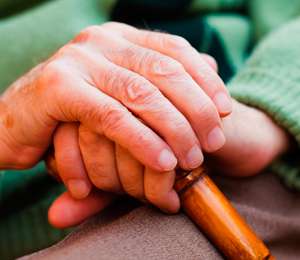Study finds lack of education widens gap in life expectancy

(Medical Xpress)—The MacArthur Research Network on Aging, chaired by Dr. John W. Rowe, has published its latest research showing a widening gap in life expectancy between Americans with higher education and those without a high school diploma.
The gap has increased dramatically among whites, with those who lack a high school diploma suffering dramatic declines in life expectancy. The biggest gap, however, persists between college-educated whites and blacks who don't complete high school.
The provocative paper was published in the August issue of the journal Health Affairs and was the lead story in today's The New York Times. Dr. Rowe, Professor of Health Policy and Management, and Dr. Linda P. Fried, Mailman School Dean, are co-authors.
The research looked at life expectancy by race, sex, and education and examined trends in disparities from 1990 through 2008. The study cautions that failure to complete high school takes a heavy toll on longevity among all groups, essentially negating the effects of recent healthcare advances and longevity gains.
"It's as if Americans with the least education are living in a time warp," says S. Jay Olshansky, professor of epidemiology at the University of Illinois at Chicago School of Public Health and lead author of the study. "The least educated black men are living in 1954, black women in 1962, white women in 1964, and white men in 1972."
Among the study's findings:
- White men and women with fewer than 12 years of education experienced dramatic declines in life expectancy since 1990. The steepest decline was for white women without a high school diploma. In 1990, they could expect to live 78 years; by 2008, it was just 73. White men without a diploma meanwhile lost three years.
- The biggest gap is between college-educated whites and poorly educated blacks. White men with 16 years of education could expect to live 14.2 more years than black men with fewer than 12 years of schooling. For women the gap was 10.3 years.
- Slight gains were seen for black women with fewer than 12 years education: by 2008, their life expectancy increased to 74—up one from 1990—and one year longer than white women with a similar level of education. However, their life expectancy is still 6 years shorter than black women with higher education.
The study reinforces the importance of education and socioeconomic status in influencing longevity. The researchers suggest that one of the most important ways to address these large disparities is through lifelong education. To not address this issue could have large social implications.
"The widening gap in life expectancy between those with and without education suggests the emergence of two Americas," says Dr. Rowe. "Less educated individuals have not participated in the remarkable gains in life expectancy we've seen in those with twelve or more years of education. As Society advances we are leaving them behind. This is not a strategy for success as a Society."














